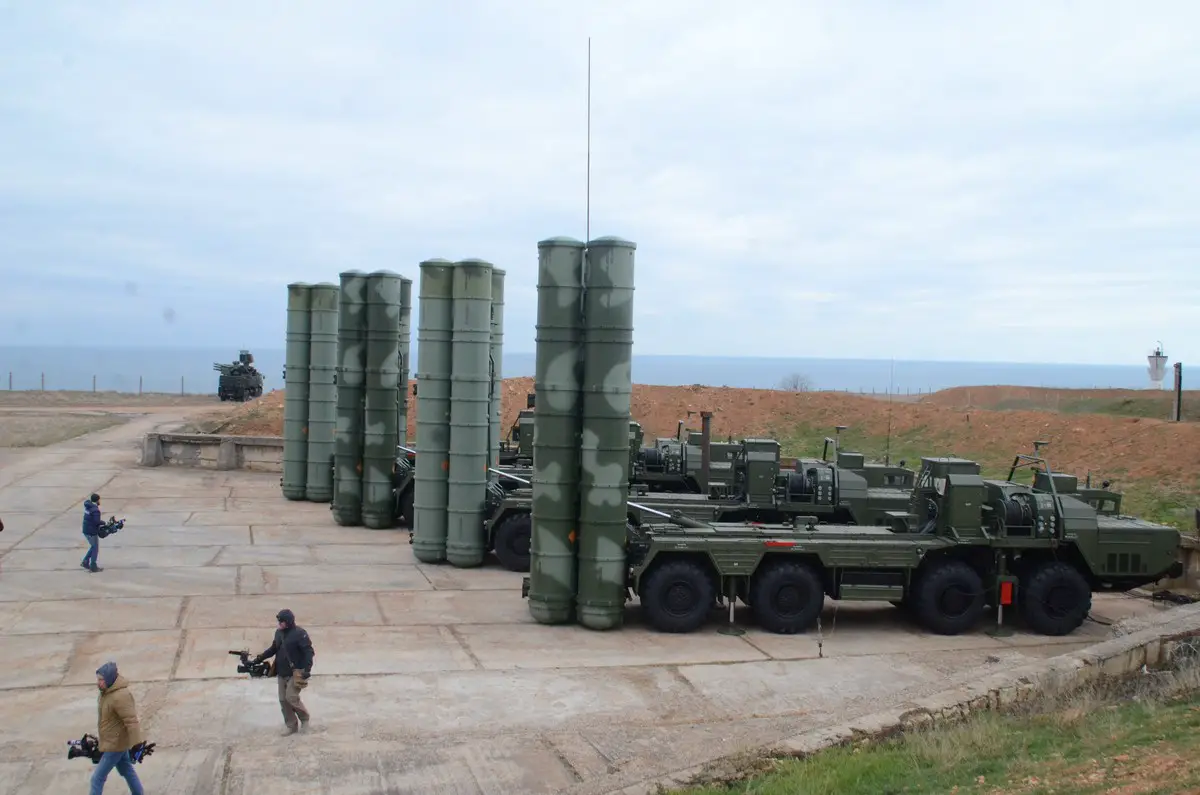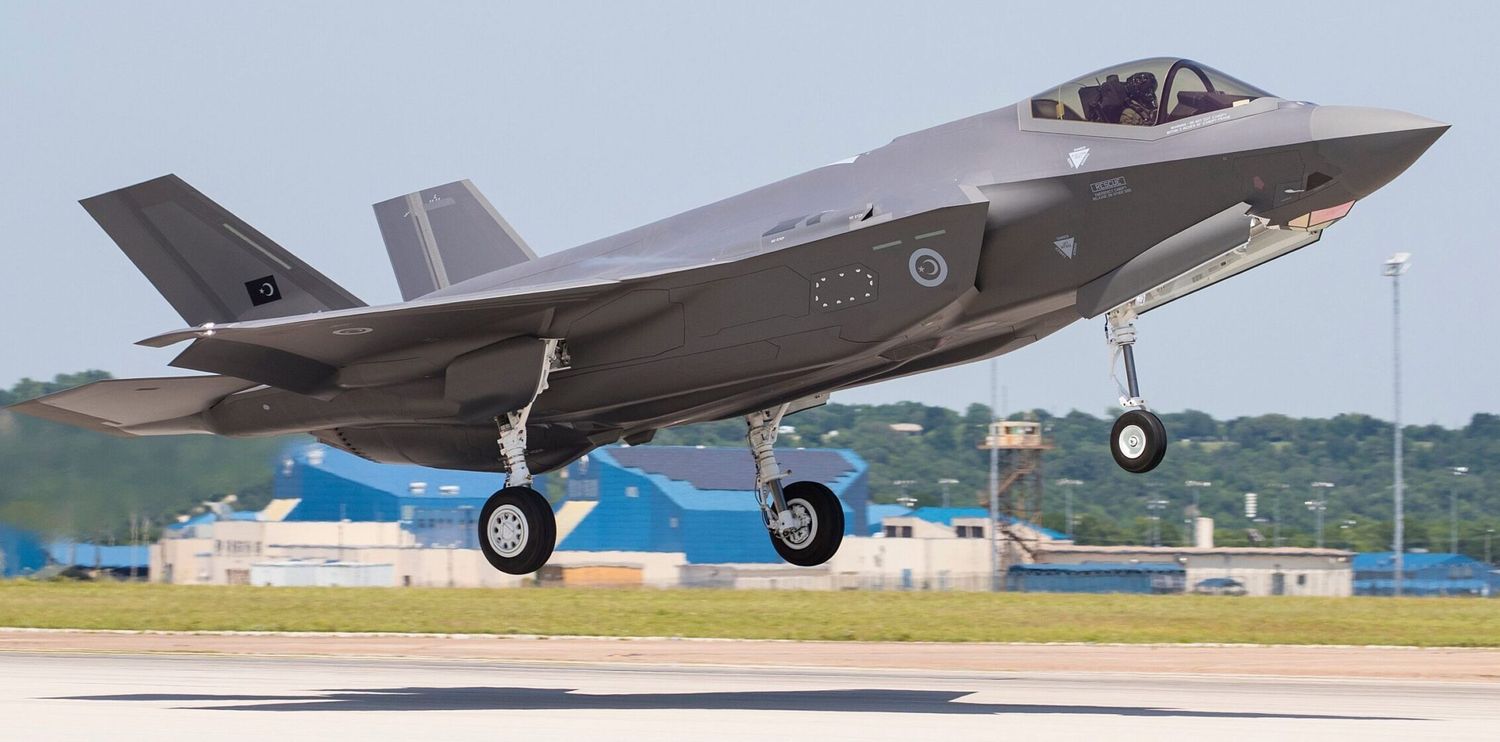Speaking before the Planning and Budget Commission of the Grand National Assembly of Türkiye (GNAT) as part of the debate on the Defense Ministry’s budget for 2025, Turkish Defense Minister Yaşar Güler hinted that the F-35 could be back on the negotiating table with Washington.
Millî Savunma Bakanı Yaşar Güler, Bakanlığın 2025 yılı bütçe teklifinin görüşüldüğü TBMM Plan ve Bütçe Komisyonu’nda bakanlık faaliyetlerini anlatan bir konuşma yaptı.https://t.co/SqP02cIlGS#MillîSavunmaBakanlığı #YaşarGüler pic.twitter.com/d3alTGrACq
— T.C. Millî Savunma Bakanlığı (@tcsavunma) November 26, 2024
«We have six aircraft there. The Americans have changed their mind about the F-35 seeing that we have developed and flown the KAAN. They themselves are expressing that they could provide us with the F-35. However, there has been no progress on that. We insist both on having our share of production returned to us and on our interest in acquiring 40 units of the F-35,” Minister Yaşar Güler assured.
Turkey and the F-35, a soap opera story
It is important to remember that Turkey is one of the original members of the Joint Strike Fighter program since 1999, playing a leading role in the development of important components of the world’s first exportable fifth-generation stealth fighter, under the leadership of the U.S. company Lockheed Martin. Ankara was planning to acquire 100 units of the F-35 Lightning II in its Alpha variant for the Air Force, and was considering adding some Bravo variant to operate from the light aircraft carrier TCG Anadolu, which will now have to use drones. In addition, ten Turkish companies participated in the production and development of the F-35, contributing an investment of more than 1 billion dollars.

The first F-35A destined for Turkey made its maiden flight on May 10, 2018, at Lockheed Martin’s Texas facility, piloted by a U.S. Navy test commander. A Turkish pilot first flew the model in August of the same year.
However, the U.S. Congress lobbied to suspend deliveries of the F-35 to Turkey because of its purchase of the Russian S-400 anti-aircraft defense system, fearing that this purchase could compromise sensitive information from the aircraft to Moscow. As a result, Turkey was sanctioned under CAATSA (Countering America’s Adversaries Through Sanctions Act), a set of measures imposed by then President Donald Trump (now President-elect), following Ankara’s decision to move forward with the S-400 purchase despite Washington’s objections and warnings. These sanctions included the cancellation of all export licenses related to the Turkish defense industry and triggered Turkey’s expulsion from the F-35 Joint Strike Fighter program in July 2019.
The U.S. position on Turkey’s readmission to the JSF (Joint Strike Fighter) program remained rigid during the Biden administration. However, earlier this year, possibly motivated by the need to strengthen NATO’s eastern flank in the wake of Russia’s invasion of Ukraine, Washington’s position began to show signs of softening.
“If we can resolve this S-400 issue, which we wish to do, the United States would be happy to welcome Turkey back into the F-35 family. If we can get past this issue, sanctions under CAATSA will be removed and we can resume talks on the F-35,” Victoria Nuland, U.S. State Department undersecretary, had said in an interview with CNN Türk.
But according to Yaşar Güler’s recent statements, the U.S. stance may have softened as well due to Turkey’s progress in developing its own fifth-generation fighter, the KAAN. This multirole fighter, designed with low-observability technology, is intended to replace the Turkish Air Force’s (Türk Hava Kuvvetleri) F-16s between 2030 and 2035, and made its maiden flight on February 21, 2024.

S-400 is “ready” for operation

On the other hand, the defense minister stated that although Turkey has no intention of getting rid of its Russian S-400 air defense systems, they remain inactive, which could be interpreted as a sign of willingness to negotiate with Washington:
“In the past, we submitted our requests to the United States, France and Italy. In our latest talks with the Americans, we rejected their demands of ‘they will do this or that’ regarding the S-400. Everything is ready for deployment and use: the locations, the warehouses where they will be installed, everything is ready. Once we give the order, the system will move to the assigned region. In 12 hours, the whole system will be operational. This is an air defense system that is used when the threat of an air attack reaches a critical level.”
See also: Ukraine hits S-400 systems in Kursk with ATACMS missiles: Russia confirms damage
Turkey renounces Viper modernization kit
Faced with the impossibility of acquiring fifth-generation F-35 fighters and with the need to renew its fighter fleet to maintain technological parity with Greece, Turkey used its veto power over Finland and Sweden’s NATO membership to negotiate with the Biden administration to upgrade its Air Force’s F-16s.
Modernization plans for the large Turkish F-16 fleet included the implementation of the ÖZGÜR project to upgrade 35 F-16 Block 30s with Turkish technology , the purchase of 79 Viper modernization kits (for later-block F-16s) and the acquisition of 40 new factory F-16 Block 70s from Lockheed Martin, for an estimated overall cost of $23 billion.
As for the acquisition of 40 new F-16s, Turkey has already made the initial payment of $1.4 billion. The total value of the operation is estimated at between $6.5 billion and $7 billion, which includes logistical support and a provision of “special ammunition”.
But regarding the modernization kits, Minister Güler stated, “Although the modernization of 79 aircraft was initially envisaged, this plan has been cancelled, as the TUSAŞ facility now has the capability to perform F-16 modernization independently,” probably referring to the ÖZGÜR modernization. This extensive, locally developed modernization package is comparable in technological terms to Lockheed Martin’s Viper kit, but relies on hardware and software designed in Turkey.

It should be noted that, as the holder of the intellectual property rights on the F-16, the U.S. must authorize Turkey to implement its own modernization on these aircraft, under threat of severe sanctions. Undoubtedly, this issue is part of the ongoing negotiations between Washington and Ankara.


Comentarios
Para comentar, debés estar registrado
Por favor, iniciá sesión